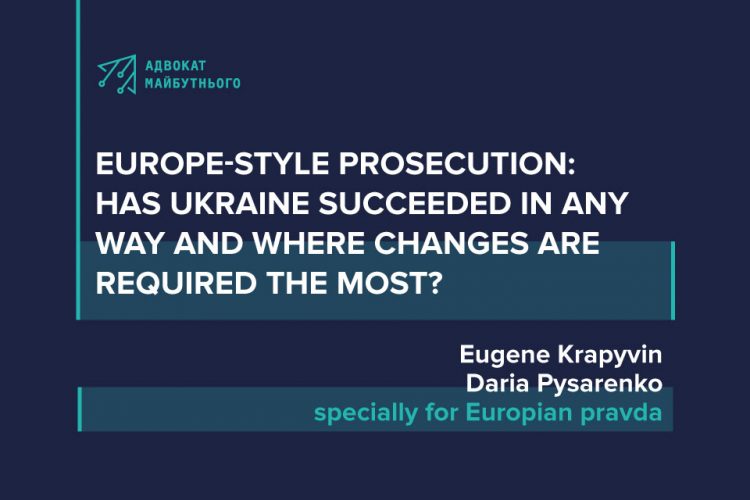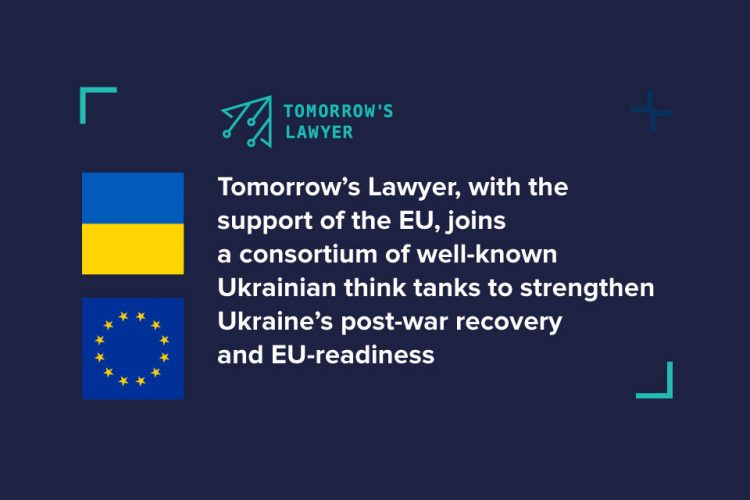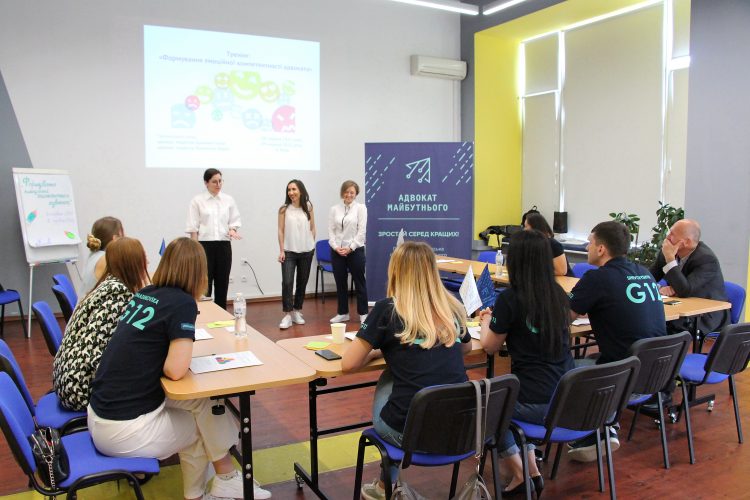
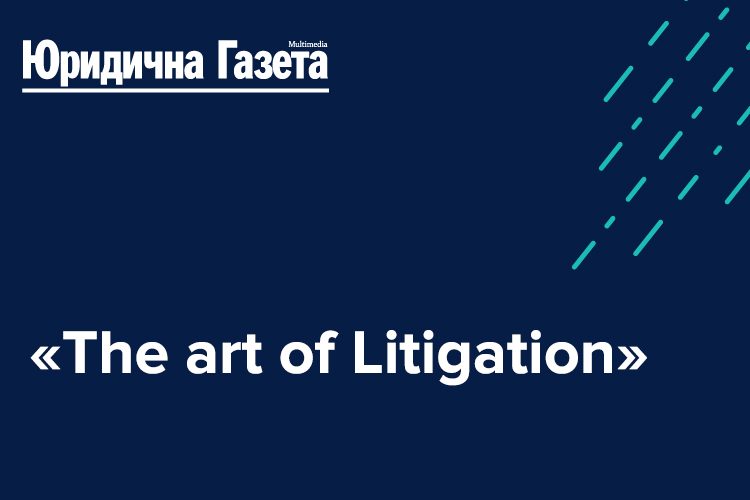
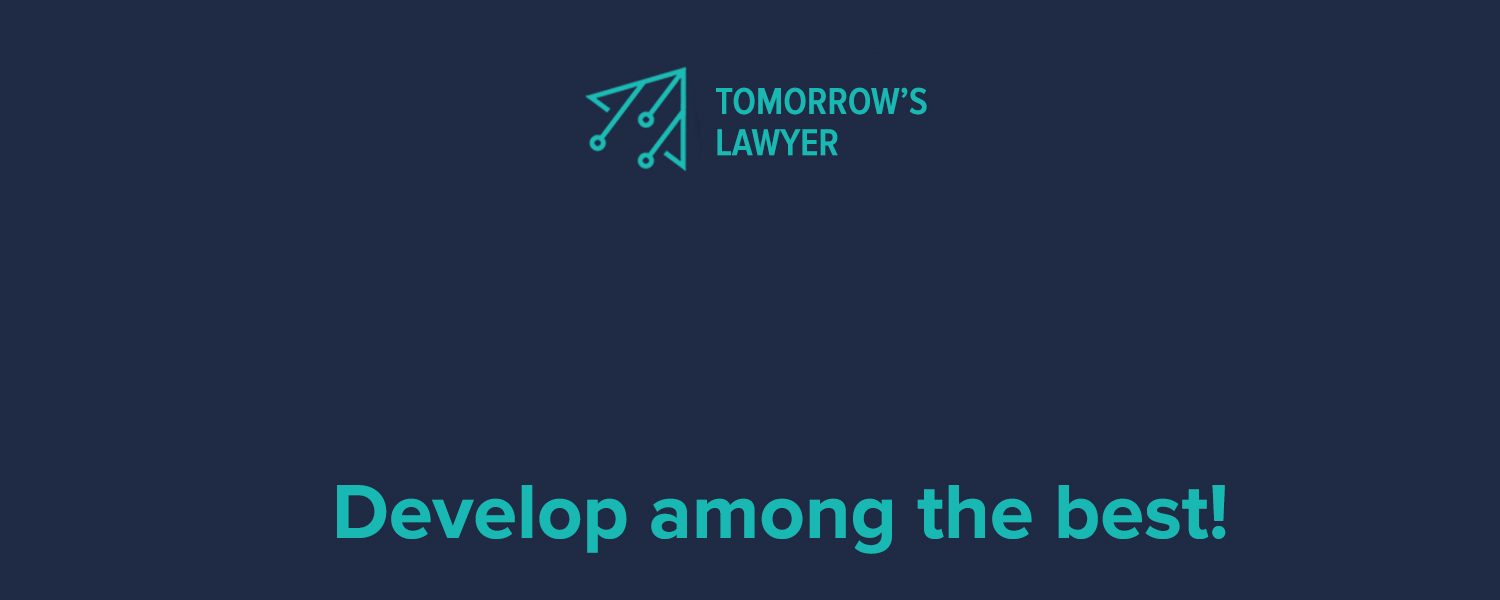
The Art of Litigation: American Dream in Ukrainian Realities
On January 31-February 1, the US Embassy in Ukraine, together with the Tomorrow’s Lawyer Program, conducted an intermodule training “The Art of Litigation in the Court”. Yurydychna Gazeta wrote about the results of the training and advice for lawyers.
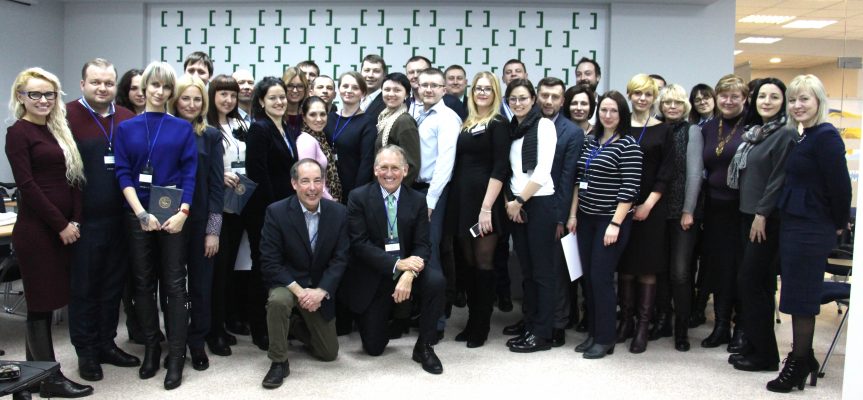
“A house that is built upon poor foundation, falls apart. You have to be an expert on what a perfect investigation should look like and base your arguments on a clear theme” – the US federal prosecutor John Enstrom encourages Ukrainian “tomorrow’s lawyers”.
Forensic eloquence, even as a general concept, is still extrinsic to Ukrainian lawyers. It is only the fourth year that Ukraine has once again embarked on reforming the judiciary and access to justice. But the most important reform shall take roots in the minds of the trial participants themselves, because it is their professional culture, ethics and skills that can help Ukraine approach the model of “high justice”, which is not a profession, but a true art.
For more than twenty years of independence Ukrainian lawyers lacked motivation to develop the skills of court speech, because often the success of the case depended not on the professional qualities of lawyers. However, the realities are changing. Now openly speaking or practicing “dealing with cases in a wrong way” is considered mauvais ton in a professional environment. Ukrainian attorneys must learn to rely only on their own knowledge and skills. After all, it is the lawyer’s ability to convince a judge with a court speech, effectively conduct direct and cross-examination is a prerequisite for the professional success of a defender in a lawsuit in a rule of law state.
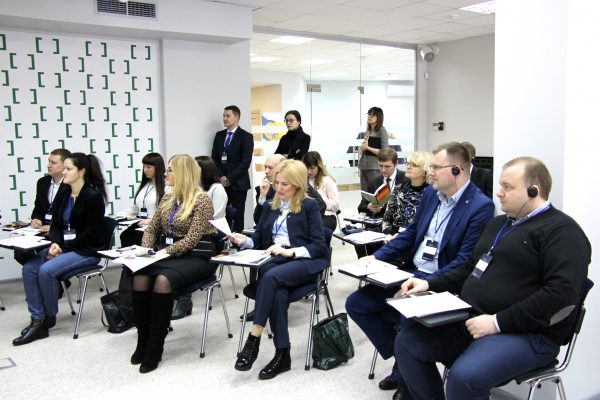
Taking into account the request for such competencies, the US Embassy organized “The Art of Court Speech” for the participants of the “Tomorrow’s Lawyer” Program and prosecutors of the Special Anti-Corruption Prosecutor’s Office (ACPO).
During two days, lawyers together with prosecutors, have been working on improving their court speech. The training covered introductory speech, direct and cross-examination, and the closing arguments. Participants were divided to work in groups, which allowed not only to develop practical skills, but also to strengthen the foundation for communication between lawyers and prosecutors. After all, the zealous procedural opponents are primarily representatives of a single legal profession, the only values and principles of which shall unite them around a common mission – the protection of human rights. The first and second aims should be the implementation of justice and the implementation of the rule of law principle. Also, during the training, the participants had the opportunity to change the procedural roles: prosecutors were tasked to play the role of defenders and vice versa.
The Ukrainian criminal procedural law does not directly provide for introductory court speeches, where prosecutors summarize the essence of the charge, state brief information about the evidence to be presented, and the expectations and the possibility of refuting the arguments of the other party. Instead, article 347 of the Criminal Procedure Code provides for the prosecutor’s announcement of an indictment, which often turns into his reading of the first to the last letter. Therefore, the experience of American coaches (lawyer and prosecutor), has made it possible for the participants not only to learn about the culture of introductory speeches in the court hearings, but also to practice them in action.
The trainers and experts of the event were true professionals, representatives of the US and Ukrainian legal community: John Steiger (lawyer, USA), John Engstrom (prosecutor, USA), Nataliya Marchuk (judge of the Supreme Court) and Lyudmyla Vygivska (Department Head of the Specialized Anti-Corruption Prosecutor’s Office).
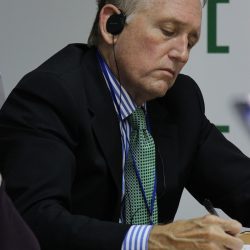 John Steiger, a law firm partner in California (USA), offers six key rules for conducting effective cross-examination:
John Steiger, a law firm partner in California (USA), offers six key rules for conducting effective cross-examination:
Preparation. You need to do a lot of work in advance to provide effective cross-examination and get the most information about your witness before the process begins. It is necessary to determine which evidence is better to use and which arguments to appeal to discredit a witness. You have to predict what the witness is going to use in court, their possible weaknesses, and which methods they can use to level your arguments during cross-examination. You also need to know who your judge is, how far you can go and which approach is best to use. All this needs to be thought out and predicted in advance.
Organization. You need to prepare for cross-examination in a way that is logical, clear, and structuring the thoughts that you want to convey. Each thesis should be singular and exhaustive, and include references to the evidence (if any). A court hearing may be unpredictable. If you are well organized, it will be easier for you to adapt to new circumstances. You can skip a question, switch to another, improvise. A well-designed plan will allow you to quickly and easily adapt to any situation.
Remember about your audience. You conduct cross-examination only for one purpose – to prove a certain fact or to question the arguments of the other party. Your task is not to hit the client, the witness, or the other party. Your task is to convince the judge or jury. And this should not be forgotten.
Control. You must have control over the witness. How it should be done? Divide your questions into separate blocks so that each question required only an unambiguous answer – yes or no. When you manage to have a simple and phased structure of interrogation, you will control the witness. If you start asking complex questions or questions that allow different interpretations, you will give the witness more than freedom. You must also have control over yourself and show the witness and judge your confidence and preparation – that you have enough evidence and background information. References to evidence, visuals and examples are very useful during cross-examination, they perform good service when it is necessary to strengthen the argument or keep the witness under control.
Flexibility. No matter the quality of the background work or how well prepared you are, you never know what might happen in the trial. You never know what the witness will say to you, what if another witness appears, so you must be ready to improvise and make a decision. And again, preparation is the key to success. The better you prepare, the easier it will be for you to adapt to the new conditions – to choose exactly the tools that you need, and exactly when they are needed.
“Stop”. When you win, stop. When you have your point, stop and sit back. When you do not know what to do, do nothing else, stop. Once you’ve given your thoughts, stop and get back. Do not expose yourself to risk and danger by continuing to interrogate, because you do not know what can happen next.
Compliance with these six basic principles will help build effective cross-examination.
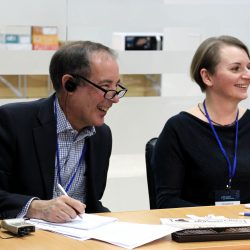 John Engstrom, a federal prosecutor in Detroit, Michigan (USA), who for many years has been prosecuting corruption and organized crime cases and acted as a legal adviser to the US Embassy in Ukraine, helped develop and implement the Criminal Procedural Code, shared six lessons for powerful closing arguments in court.
John Engstrom, a federal prosecutor in Detroit, Michigan (USA), who for many years has been prosecuting corruption and organized crime cases and acted as a legal adviser to the US Embassy in Ukraine, helped develop and implement the Criminal Procedural Code, shared six lessons for powerful closing arguments in court.
Your defense should be based upon a theme. A theme should be articulated in the opening statement, if you do an opening statement. But at least it should be clear in your closing argument. For instance, a theme could be an alibi: a crime occurred but my clients didn’t do it.
Familiarize yourself with proper investigative procedures and practices. You have to be an expert on what a perfect investigation should look like. And that requires you to learn what investigators learn when they go to school, because then what you want to do is think about what perfect investigation would be and then compare the investigation that you have in your case. Argue that based upon all collective errors in the investigation, a reasonable doubt has been raised as to the very foundation of the investigation. It is not uncommon to hear that “a house that is built upon poor foundation, falls apart”, so you argue that each of these problems in investigation amount to a very poor foundation and the prosecutor’s case falls.
Be prepared to respond directly to the arguments made by the prosecutor in his closing statement. That means that you can prepare closing argument in advance and you should think about what you think the prosecutor is going to argue and be prepared to respond to it, but you’d better also listen to the prosecutor and be prepared to respond to that particular argument that he or she made. Don’t just give the argument that you planned in your office the night before. You have to be flexible this way.
Always humanize your client. Make sure that the court understands that this is a very significant moment for your client.
Discredit an unfavorable witness. If the prosecutor’s witness has hurt you particularly, maybe several of them have, you have to in your closing argument take a moment to talk about each of those witnesses specifically. You will have to explain why the court should not accept their testimony. Maybe the witness was biased, maybe the witness didn’t perceive the events very well, whatever the reason, you’d better be very clear as to why the witness should not be believed. You can’t simply tell the court that a witness is a liar, you have to go that extra step and explain why the court should conclude that he lied. And that could be based upon inconsistent statements in the past or financial bios – all sorts of reasons. But you need to be very clear to the court. You are leading the court and giving the court arguments it is going to make in its conclusions.
Finally, always remind the court that the burden of proof lies firmly on the shoulders of the prosecutor and a state. And that your client is presumed innocent evet at this moment of a trial. He presumed innocent and is entitled to this presumption of innocence and it doesn’t go away unless the prosecutor meets the overwhelming burden of proving the case beyond a reasonable doubt. Just remind the court that you have no burden in this case – it’s on the government. And if the government did not prove the case beyond a reasonable doubt, that that’s what the court should conclude. But the argument has to be specific on all these points – so take those witnesses, those arguments and break them down into the pieces, so the court would have reasons to reject the prosecution’s case. That’s what the closing argument is for.
American trainers were joined by Nataliya Marchuk, a newly elected judge of the Court of Criminal Cassation of the Supreme Court and Lyudmyla Vygivska – head of the analytical and statistical department of the Specialized Anti-Corruption Prosecutor’s Office.
Lyudmila Vygivska, having the experience of teaching criminal law students and students to advanced training courses for prosecutors, was impressed by the professional level of lawyers – participants of the “Tomorrow’s Lawyer” Program. She have expressed the hope that the clever perception by the participants of an introductory speech well-accepted in the American criminal process would lead to positive developments in the Ukrainian realias. “It is advisable to focus the attention of the court and the participants of the process on the content, the main idea of prosecution or defense, to clearly and firmly state their position, moving away from dry template phrases” – the trainer quoted as saying.
Natalia Marchuk advised lawyers to pay more attention to the theoretical basis and learn to apply it comprehensively. In particular, the judge recommended studying additional sources and not be afraid to apply the obtained knowledge in litigation. Also, according to the trainer, it’s important for lawyers to learn from their own experience and not to perceive the loss as a personal offense: “The best take away from any defeat is an analysis of your own strategies and approaches to the case.”
Daria Pysarenko, Coordinator of the “Tomorrow’s Lawyer“ Program
Maria Ulyanovska, Communication Manager of the “Tomorrow‘s Lawyer” Program
***
The opinions expressed in this article are the author’s own and do not reflect the view of the “Tomorrow’s Lawyer” Program, the Ukrainian Bar Association, the Bar Association of Legal Aid Providers, the Quality and Accessible Legal Aid in Ukraine Project, the Canadian Bureau for International Education, or the Government of Canada and the Law Enforcement Section of the United States Embassy in Ukraine.
“Tomorrow’s Lawyer” is a powerful network of advocates uniting opinion leaders in the legal profession, who provide legal assistance in accordance with the highest ethical standards, act as agents of change in society and leaders in the professional community.
The Program was developed during 2016-2017 with the support of The Quality and Accessible Legal Aid Project with an expert contribution from the Canadian Bar Association. In 2018, the “Tomorrow’s Lawyer” Program is being implemented by the Ukrainian Bar Association and the Bar Association of Legal Aid Providers, with the support of the United States Embassy and The Quality and Accessible Legal Aid in Ukraine Project funded by the Government of Canada and implemented by the Canadian Bureau for International Education (CBIE).
